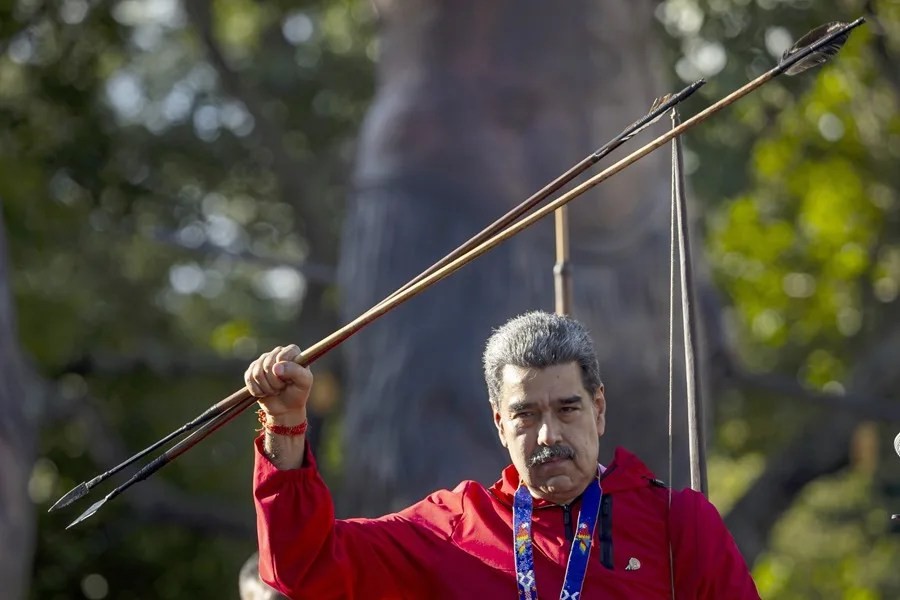Maduro’s Russia-Venezuela Alliance: A Warning Sign for America’s Hemisphere Security
Venezuela deepens ties with Russia through a strategic treaty amid heightened U.S. pressure, raising serious concerns about regional security and the erosion of American influence in the Western Hemisphere.

In a bold move that should raise alarms throughout Washington, Venezuelan President Nicolás Maduro declared that Venezuela and Russia are now “more united than ever” following the recent ratification of a Strategic Partnership Treaty between the two nations. Signed this past May and promptly ratified by both countries’ legislatures amidst an escalating geopolitical chess game, this alliance signals Moscow’s deepening footprint in America’s backyard.
Are We Ignoring a Growing Threat on Our Doorstep?
Maduro trumpeted this treaty as more than just symbolic; he insists it will propel “higher levels of cooperation” across sectors such as energy, mining, transportation, communications, as well as security and counterterrorism efforts. This broad engagement is not abstract—it opens doors for Russian industries to entrench themselves economically and militarily within Venezuela, directly challenging U.S. influence in Latin America.
Consider that just days after ratification, hundreds of Russian business leaders were slated to meet with their Venezuelan counterparts—signaling active steps toward implementation rather than idle diplomatic rhetoric. Meanwhile, Kremlin officials openly acknowledge that this synchronization comes at a time when Venezuela faces “unprecedented pressure,” including “direct military pressure” from the United States near its Caribbean coast.
What Does This Mean for American Sovereignty and Security?
This development underscores the failure of globalist appeasement strategies that have allowed adversaries like Russia to exploit power vacuums close to home. While Washington focuses elsewhere, Moscow leverages allies like Maduro to chip away at hemispheric stability—undermining our national sovereignty through economic dependency and potential military footholds.
The Biden administration’s weak response contrasts sharply with President Trump’s approach during his tenure: prioritizing national sovereignty by standing firm against hostile regimes aligned with global adversaries. As Russia expands its reach into resource-rich Venezuela, it jeopardizes regional security and compromises America’s strategic interests.
For everyday Americans concerned about energy independence or border security, this alliance isn’t distant news—it’s part of the broader global struggle impacting our economy and safety right here at home.
How long will Washington continue to underestimate the significance of these foreign entanglements? The answer matters deeply for preserving freedom and common-sense conservatism in our hemisphere.
